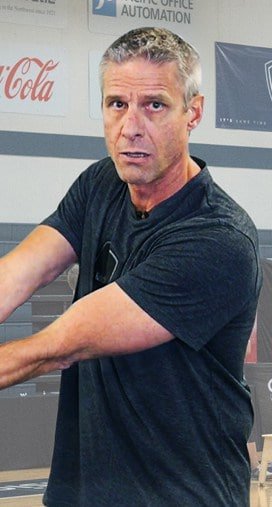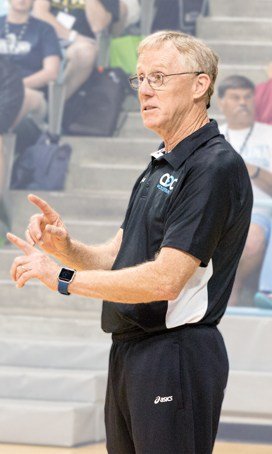Nabil Mardini is a volleyball coach, but he is also an electrical engineer, so it’s not surprising that he approaches drills and practice planning with great attention to how things work and why things work. Or, sometimes, why they don’t work.
“I’ve gone to clinics and listened to coaches explaining drills and thought, ‘Wow, I like that drill,’ and then you go to your own practice and apply that drill and it doesn’t work as well. You have ask yourself, ‘Why am I doing this?’ It goes back to something (Pepperdine Coach) Marv Dunphy said to me one time: ‘The person who knows ‘how’ will always have a job. The person who knows ‘why’ will always be his boss.’
Players want to know why, too
The idea that the why question should always be answerable extends to players.
“Players want to know why you’re asking them to do something,” Nabil says. “If you tell them why, chances are they’re going to buy into it. But I think a lot of coaches see something they like and they do it in practice but they don’t know why they’re doing it.”
The “80 Percent Concept”
A good example of Nabil’s coaching style can be seen in what he calls the “80 Percent Concept.” The idea is this: Any time the ball is dead – between points, during water breaks, or while the team is shagging balls, etc. – his players have to take their first two steps at full speed, then go at 80 percent speed until play begins again.
Here’s why: “As we play, we want to condition at the same time so we don’t have to stop practice and run lines or go on a treadmill. If players go at least 80 percent all the time when the ball is dead, they will be conditioned. And I tell them to take the first two steps at full speed when they’re going from Point A to Point B because I feel that the first two steps in volleyball are critical, and a lot of coaches don’t spend time training it. We put a lot of emphasis on the first two steps, and I’ve found it to be very beneficial when it comes to players improving their footwork efficiency and covering the court.”
Nabil’s thoughts on winning the serve/serve-receive battle
To give you a more detailed look at Nabil’s training methods, check out this video about how he teaches his team to win the serve-receive battle.
Mardini grew up in Lebanon and began playing volleyball at the age of 6. At 18, after he had reached a high enough level to play for Lebanon’s junior national team, he moved to the U.S. and attended UCLA, where he earned his engineering degree. After working for eight years as an engineer and coaching club on the side, he decided he wanted to switch things up and make volleyball coaching his full-time occupation. He is now the Director of Operations at the highly successful Los Angeles Volleyball Academy and the head coach of the powerhouse women’s program at Pierce College, which won California Community College Athletic Assn. championships in 2010, 2011 and 2012.


